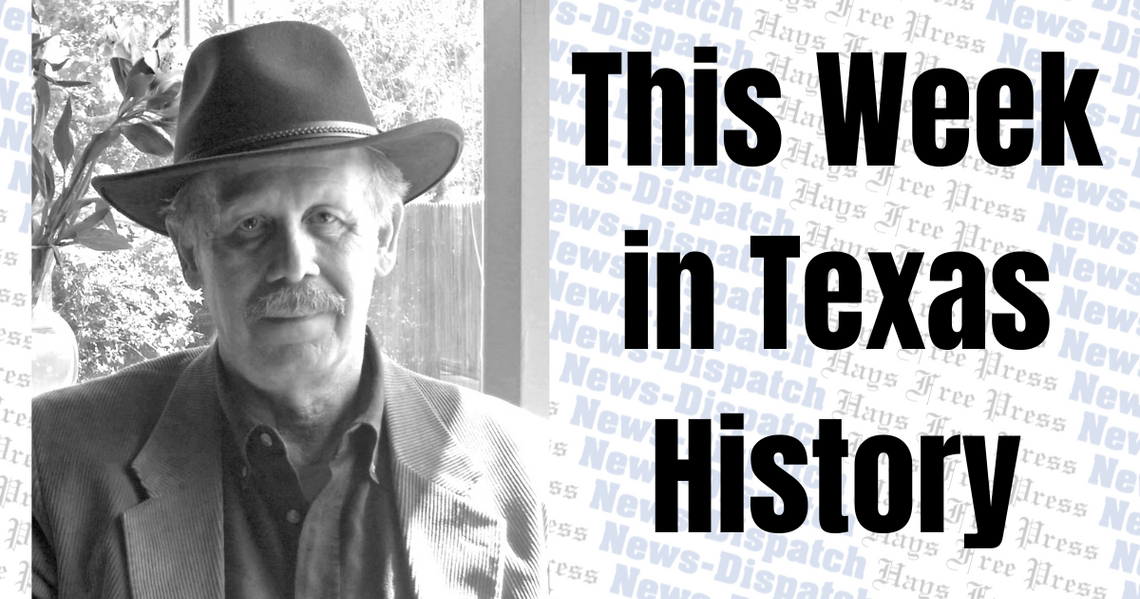On Mar. 22, 1877, Guy M. Bryan wrote the new President of the United States, who happened to be an old college classmate, to recommend a relative for the Supreme Court.
William Pitt Ballinger had no idea why the caretaker governor summoned him in the middle of May 1865. He was relieved to learn that Pendleton Murrah and Gen. John Bankhead Magruder had accepted the fall of the Confederacy as an irreversible fact.
The war was over, and they needed someone to negotiate a separate peace for Texas. For once Ballinger’s stubborn opposition to secession would come in handy. The victorious Yankees might be willing to talk to a Unionist, who had not shed a single drop of blood for the Lost Cause.
Accompanied by Ashbel Smith, a diplomat that negotiated treaties for the defunct Republic, Ballinger sailed for New Orleans on May 27, 1865. His twin objectives were to keep northern soldiers out of Texas and the freed slaves working for their former masters.
Gen. Edward Canby was polite, even gracious, and let the visitors have their say. He then told them there was no way Texas could avoid military occupation, which began on Jun. 19 with the arrival in Galveston of 800 troops. But Canby and his better known superior, Gen. Philip Sheridan, did assure the two-man delegation they would do everything in their power to maintain a stable black labor force.
For a discussion of political matters, Gen. Canby suggested the Texans speak directly with President Andrew Johnson. Ballinger and Smith decided to heed his advice and hung around New Orleans waiting for their travel documents.
But the Washington trip was canceled by soreheads back home. Radical Republicans, whose property Ballinger confiscated as Confederate receiver, “opposed me representing Texas for I had been engaged in the most odious work of the rebellion.”
Ballinger learned upon returning to Galveston that Johnson had issued a general amnesty that wiped the slate clean for most southerners. Only two groups of former Confederates, government officials and those with assets in excess of $20,000, were exempt and had to apply for presidential pardons.
Since he fell into both categories, Ballinger wasted no time in penning a personal appeal to the president. But he realized that full restoration of his rights could not be accomplished through the mail.
Carrying glowing testimonials from the provisional governor and lesser luminaries, Ballinger made the difficult journey through the war-ravaged South. His first stop in Washington was the home of a kinsman, whose influence could tip the scales in his favor.
Ballinger and Samuel F. Miller had been close since their Kentucky childhood, and their warm friendship had weathered the war. Miller now sat on the Supreme Court, one of five Lincoln appointees.
The reunion with his brother-in-law left Ballinger worried and depressed. Miller told him flatly, “Reason dictates that in some way you should be punished.” The justice insisted that examples had to be made of Confederate leaders, which meant prison for most and the gallows for “a half dozen of the most prominent and wicked.”
When Ballinger called again, Miller had letters of introduction to the president and secretary of state William Seward waiting for him. One sentence leaped off the parchment: “I have never known a man whose integrity I would rely on more confidently.”
Miller had gone to bat for him and knocked the ball out of the park. The pardon -- the first to a Texan -- was granted without the applicant setting foot in the White House.
Ballinger suddenly found himself in the absolution business. He presented 40 petitions from other worthy Texans to the obliging president and within the month had wonderful news for 40 grateful clients.
Texas’ top attorney had not secured the priceless pardons out of the goodness of his heart. His net profit after expenses was $7,500, a handsome sum for those times.
Even though Ballinger’s fortune steadily grew after resuming his law practice, he always seemed preoccupied with money. It was the paltry pay that he cited as the reason for turning down a seat on the state supreme court offered in 1874 by Gov. Richard Coke.
Another brother-in-law put Ballinger on the spot three years later. As soon as Rutherford B. Hayes was sworn in as president, Guy Bryan launched an all-out campaign to convince his college chum to choose Ballinger for the highest court in the land.
This time the public-service shy lawyer could not plead poverty nor trot out his second-favorite excuse that he could not bear to be parted from his family. So Ballinger argued that his Confederate past was certain to come back to haunt him and cause public embarrassment for all concerned. He planted the seed of doubt that undermined Bryan’s efforts and eventually allowed him to withdraw his name from consideration.
The year after William Pitt Ballinger spurned a seat on the U.S. Supreme Court, admiring Texans handed him the governorship on a silver platter. Once again he declined the honor, and that was the last time opportunity knocked.
“Unforgettable Texans” brings to life the once famous people no one remembers today. Order your copy for $24.00 by mailing a check to Bartee Haile, P.O. Box 130011, Spring, TX 77393.











